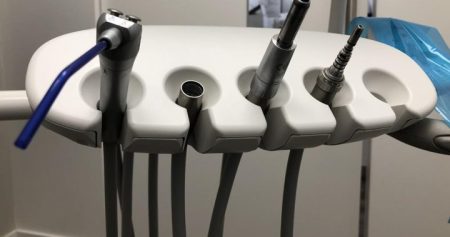The reintroduction of fluoride to Calgary’s drinking water has been delayed again, with construction expected to be completed in the first quarter of 2025. Fluoride was removed from the city’s drinking water in 2011, and the required infrastructure upgrades at the Glenmore and Bearspaw Water Treatment Plants were decommissioned and removed following the decision to stop fluoridation. Construction started in September 2023, with the system expected to be ready this fall, but global supply chain uncertainties have pushed the completion date to 2025.
In November 2021, city council voted to reintroduce fluoride to Calgary’s drinking water after a plebiscite showed 62% support for the mineral to be added. Dr. James Dickinson, a professor at the University of Calgary, was part of a campaign to get fluoride back into the water supply and expressed disappointment at the delay. He emphasized the importance of fluoride for oral health, particularly for children who may not have access to dental care. The re-introduction of fluoride is not only taking longer but is also more costly than originally estimated, with infrastructure costs at the two treatment plants increasing to $28.1 million.
A new study conducted by dental researchers at the University of Alberta found that discontinuing water fluoridation negatively affects young children’s oral health, potentially leading to an increase in caries-related dental treatments under general anesthesia. The study compared the rate of such treatments in fluoridated and non-fluoridated communities in Alberta between 2010 and 2019. Results showed that the cessation of water fluoridation was associated with an increased rate of caries-related treatments under general anesthesia in both age groups, with a more pronounced effect in younger children in non-fluoridated areas.
Dickinson highlighted that dentists have been seeing an increase in dental problems in children since the loss of fluoride, with more children requiring general anesthesia for major dental work. The study confirmed the rising rates of dental treatments under anesthesia in Calgary, particularly for children under five years old. Dickinson emphasized the long-term impacts of poor oral health, noting that even a single cavity in a child’s permanent teeth can lead to expensive dental treatments later in life. Starting with healthy teeth as children can make a significant difference in overall oral health and the cost of dental care.
The delay in the reintroduction of fluoride to Calgary’s drinking water has raised concerns about the impact on oral health, particularly for vulnerable populations who may not have access to regular dental care. Advocates, like Dr. Dickinson, stress the importance of fluoride for preventing dental issues and the societal benefits of adding it to the water supply. The study from the University of Alberta further supports the need for water fluoridation to reduce the rate of caries-related dental treatments under general anesthesia, especially in non-fluoridated areas like Calgary. The city’s decision to reintroduce fluoride is crucial for ensuring the oral health of its residents, especially children.
Overall, the delay in the reinstatement of fluoride reflects ongoing challenges with infrastructure projects and global supply chains. However, the importance of fluoride for oral health, particularly in preventing dental issues in children, cannot be understated. The increased costs and timeline for the infrastructure upgrades highlight the complexities of implementing public health initiatives like water fluoridation. Moving forward, it will be essential for the city to prioritize the completion of these upgrades to ensure that fluoride can be reintroduced as soon as possible, benefiting the dental health of all Calgarians.















